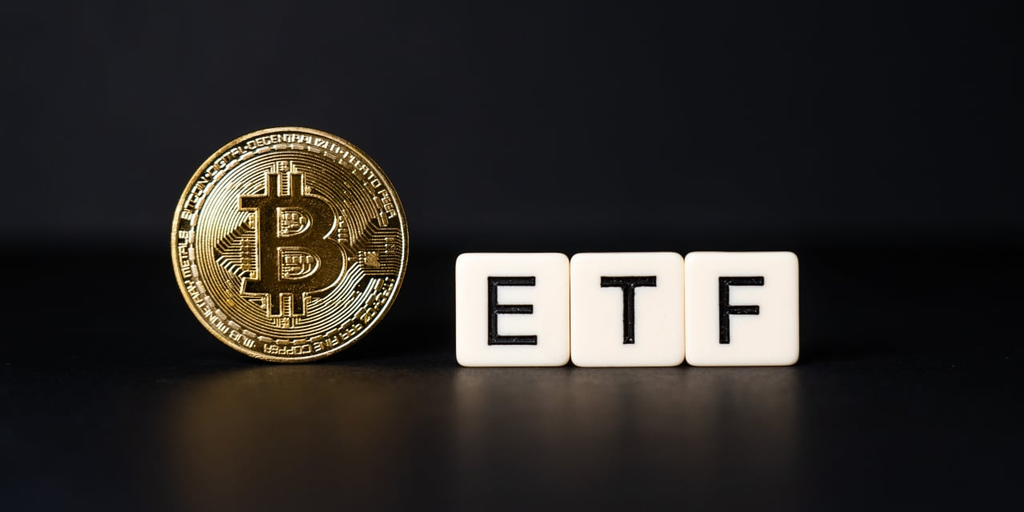Analysts are weighing in on what happens next as the financial world awaits the first Bitcoin ETFs to be approved by the U.S. Securities and Exchange Commission—especially as filings started to move forward late Friday.
“Okay,” Bloomberg Analyst James Seyffart said on Twitter, “[BlackRock’s] 19b-4 amendment is in too. Expect to see 11 of these this evening.”
Sure enough, by 6 p.m. ET on Friday, all of the Bitcoin ETFs filed their 19B-4 forms with the SEC.
Organizations like stock exchanges or investment firms file 19b-4 with the SEC to propose rule changes. The form details the changes and reasons, undergoes public review, and awaits SEC approval.
“We’ve been hearing that the SEC has been working with the issuers on their 19B-4s,” Bloomberg Senior ETF Analyst Eric Balchunas said in an earlier interview with Rug Radio. “They’re going back and forth on drafts. So that’s why we’ve seen S-1 get updated. But the 19B-4s edits have gone right to the SEC. They haven’t been refiled.
“So when we see those refiled, we’ll know that the SEC has signed off on them as being final,” he continued.
During a Friday Twitter Spaces interview with Rug Radio Balchunas suggested that once the SEC begins approving Bitcoin ETFs, the asset class could be worth billions.
“A couple of billion will be a solid New Year for any category, but I’d be a little more optimistic than that, like maybe $10 billion in year one,” Balchunas said. “It’s the short-term that is hard to predict here. In the medium term, we do see this, maybe in the ballpark of [$30 billion] to [$50 billion] over three years. And then maybe it settles to where gold is at about $100 billion over five to ten years.”
Driving Balchunas’ bullish statement was the number of high-profile investment companies filing Bitcoin ETF applications with the U.S. Securities and Exchange Commission, including the largest investment firm in the world, BlackRock.
“This is where I think I’m more optimistic because Blackrock has these model portfolios. And they have well over $100 billion,” he said. “So if they put even 1% into this new ETF as an allocation, that’s a billion dollars.”
Bitcoin ETFs track the current price of Bitcoin and should act in lockstep with Bitcoin’s price swings, giving investors exposure without the need to buy and store the digital asset.
“I would say the ETF is a long bridge between those those two worlds, which is again why it’s so interesting and fascinating.” Balchunas said.
Balchunas also noted the damage done to the market by the collapse of the cryptocurrency exchange FTX and the subsequent arrest, trial, and conviction of founder Sam Bankman-Fried.
“While FTX scared smaller fish out of crypto, the bigger fish are in the lake, which is what these ETFs are,” Balchunas said, adding that big fish don’t bite right away. “They’re harder to please, and they sniff around the bait. You don’t get them right off the bat like you do the small fish, but when the bites come, they should be bigger and more substantial, but I don’t see a crazy feeding frenzy.”
Balchunas predicted that in the future, cryptocurrency trading is expected to become more cost-effective and efficient, with significantly lower transaction fees. This fee reduction will starkly contrast with the higher commissions charged by current platforms like Coinbase.
“Five to ten years from now, even two years from now, is you’re gonna have a really cheap, very liquid [market], liquid meaning when you trade it, it’s only one basis point, so that makes Coinbase commissions look like highway robbery.”
Balchunas also highlight the potential gains from the anticipated involvement of reputable brands and the regulatory approval of the Securities and Exchange Commission (SEC), which he said will add credibility and trust, emphasizing the changing views of retail investors.
“Retail investors don’t have the FOMO they did in 2021,” Balchunas said.
Edited by Ryan Ozawa.
Stay on top of crypto news, get daily updates in your inbox.
Credit: Source link




